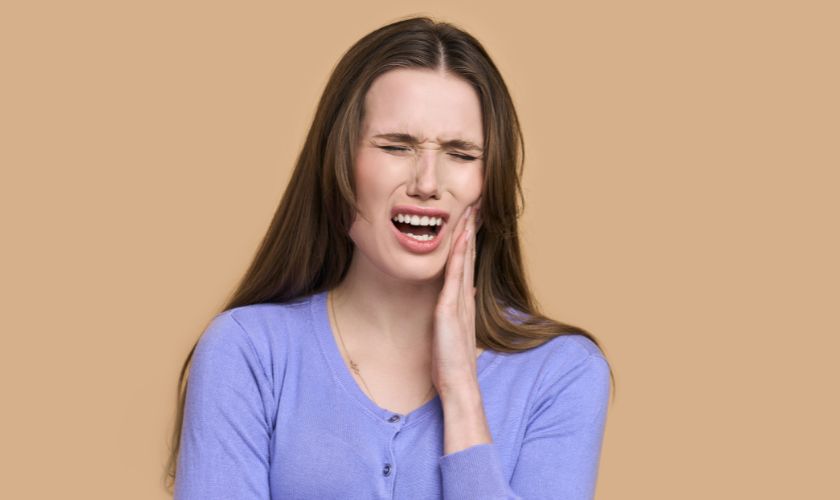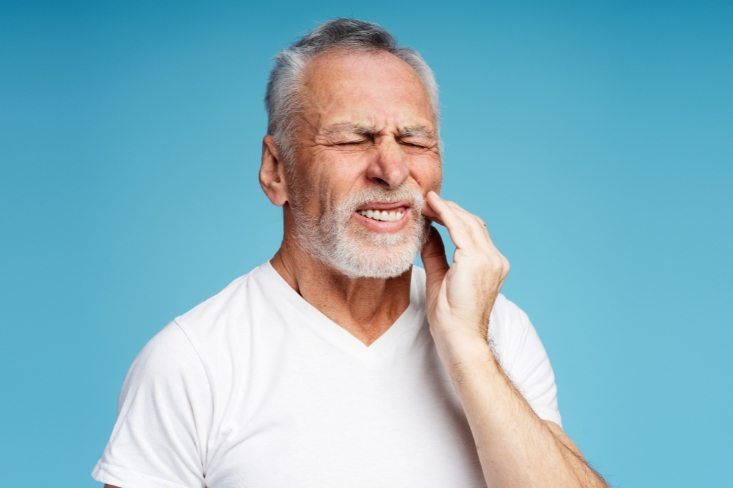345B Latoria Blvd #202, Victoria, BC, V9C 0S9

Dental emergencies can be painful, inconvenient, and costly. However, there are proactive measures you can take to prevent them from happening in the first place. These proactive measures can go a long way in keeping your teeth and gums healthy and free from emergencies. By adding them to your ‘To-do’ list, you can greatly reduce your risk of experiencing a dental emergency. Today’s blog will let you travel on a road where dental emergencies are usually not allowed.
1. Importance of Preventing Dental Emergencies
Dental Emergencies: A Painful Experience
Dental emergencies can be as fun as stepping on a Lego in the dark – painful and unexpected. Preventing them is like wearing slippers instead.
Better Safe Than Sorry: Cost and Discomfort
Avoiding dental emergencies not only saves your wallet from a surprise attack but also spares you from the discomfort of sudden tooth troubles. Prevention is kind of like a dental superhero cape!
2. Daily Dental Care Practices for Prevention
Brushing Techniques for Optimal Oral Health
Brushing like you’re cleaning a delicate eggshell is the way to go – gentle and thorough. Good brushing habits can keep dental woes away better than a “Beware of the Dog” sign!
The Power of Flossing: Preventing Bacteria & Infection
Flossing is like the ninja warrior of oral health – quietly fighting decay and infections between teeth. Make flossing a habit to keep your smile shining bright like a diamond.
3. Choosing the Right Protective Gear
Mouthguards for Sports and Physical Activities
Think of mouthguards as your teeth’s bodyguards during sports – essential for protecting your pearly whites from unexpected hits. Be a champ and guard those champs!
Night Guards for Bruxism and Teeth Grinding
Night guards are like a cozy blanket for your teeth, shielding them from the nightly grind. Say goodbye to toothwear and hello to a restful sleep without the sound of gnashing teeth.
4. Maintaining Regular Dental Check-Ups
The Role of Routine Dental Exams and Cleanings
Regular dental check-ups are like the backstage crew of your oral health, keeping things running smoothly behind the scenes. Schedule those exams and cleanings to keep your smile in the spotlight!
X-rays and Early Detection of Dental Issues
X-rays are like dental detectives, uncovering hidden dental problems before they become headline news. Early detection is key to preventing dental dramas – Sherlock Holmes would approve!
5. Detecting Common Causes of Dental Emergencies
Trauma and Accidental Injuries
One minute you’re minding your business; the next, you’re face-first on the pavement wondering where your tooth went. Trauma and accidental injuries, whether from sports, falling down the stairs, or a random encounter with a rogue door, can lead to dental emergencies quicker than you can say “Ouch.”
Tooth Decay and Cavities: The Silent Villains
Ah, tooth decay and cavities, the sneakiest of foes. They hang out in your mouth, quietly wreaking havoc until one day you’re hit with a sudden jolt of pain that feels like a tiny construction crew decided to set up shop in your tooth.
6. Emergency Preparedness and First Aid Tips
Handling Toothaches and Pain Management
Ever had a toothache that felt like a tiny gnome was practicing his jackhammer skills in your mouth? Yeah, it’s not fun. Knowing how to handle toothaches and manage the pain can be a lifesaver in those moments when you feel like your mouth is staging a full-blown revolt.
Treating Knocked-Out Teeth and Dental Fractures
You’re enjoying a leisurely stroll when suddenly, you find yourself in a dental emergency situation – a knocked-out tooth or a dental fracture. Quick thinking and knowing how to handle these situations can mean the difference between saving your precious pearly whites or bidding them a tearful farewell.
7. Lifestyle Habits that Impact Dental Health
Diet and Nutrition: Fueling Healthy Teeth
You are what you eat, and so are your teeth. A diet high in sugary treats and acidic drinks can spell disaster for your dental health faster than you can say “cheeseburger.” On the flip side, fueling your body with tooth-friendly foods can go a long way in keeping your smile bright and healthy.
Smoking, Alcohol, and Their Effects on Oral Health
Ah, smoking and alcohol, the dynamic duo of dental destruction. From yellowing teeth to increasing your risk of gum disease and oral cancer, these habits can wreak havoc on your oral health faster than you can say, “I’ll just have one more.” It’s time to kick these villains to the curb and give your teeth the love and care they deserve. Incorporating these proactive strategies into your oral care routine can go a long way in preventing dental emergencies and preserving your dental health.
By staying mindful of daily habits, staying prepared for unexpected situations, and prioritizing regular check-ups, you can minimize the risk of experiencing painful emergencies. Remember to avoid unnecessary distress. Stay proactive, stay informed, and enjoy the benefits of a happy, healthy mouth for a long time.
Consultation Corner: Your Smile’s Shield Against Emergencies
Now, you’ve reached the consultation section designed to empower you to take charge of your oral health and minimize the risk of dental emergencies. If you experience a sudden toothache, swollen gums, or any other concerning symptoms, don’t hesitate to call a professional dentist immediately. Schedule your consultation today! Let’s work together to ensure your smile stays happy and healthy.
FAQ
1. How often should I visit the dentist to prevent dental emergencies?
A. Generally, visiting the dentist twice a year (every 6 months) is recommended for checkups and cleanings. This allows your dentist to catch small problems early before they become emergencies. However, some factors might require more frequent visits, like gum disease or certain medical conditions. Discuss your individual needs with your dentist.
2. Are mouthguards necessary for all physical activities?
A. Mouthguards are especially important for activities with a high risk of contact or falls, such as contact sports, martial arts, cycling, or even high-impact exercise. However, even in seemingly low-risk activities like playing basketball or skateboarding, a mouthguard can prevent serious dental injuries. Talk to your dentist about the best type of mouthguard for your needs.
3. What should I do if I experience a sudden toothache?
A. A sudden toothache can be a sign of a serious problem. Call your dentist immediately to schedule an appointment as soon as possible. In the meantime, you can try rinsing your mouth with warm salt water to reduce discomfort. Do not apply heat directly to the toothache. Over-the-counter pain relievers may provide temporary relief.
4. How can lifestyle habits like diet and smoking impact my dental health and risk of emergencies?
A. Significantly affect your oral health and increase the risk of emergencies. Sugary foods and drinks contribute to tooth decay while smoking weakens gums and increases the risk of gum disease and infections. Maintaining a healthy diet low in sugar and avoiding smoking are crucial for good dental health.


